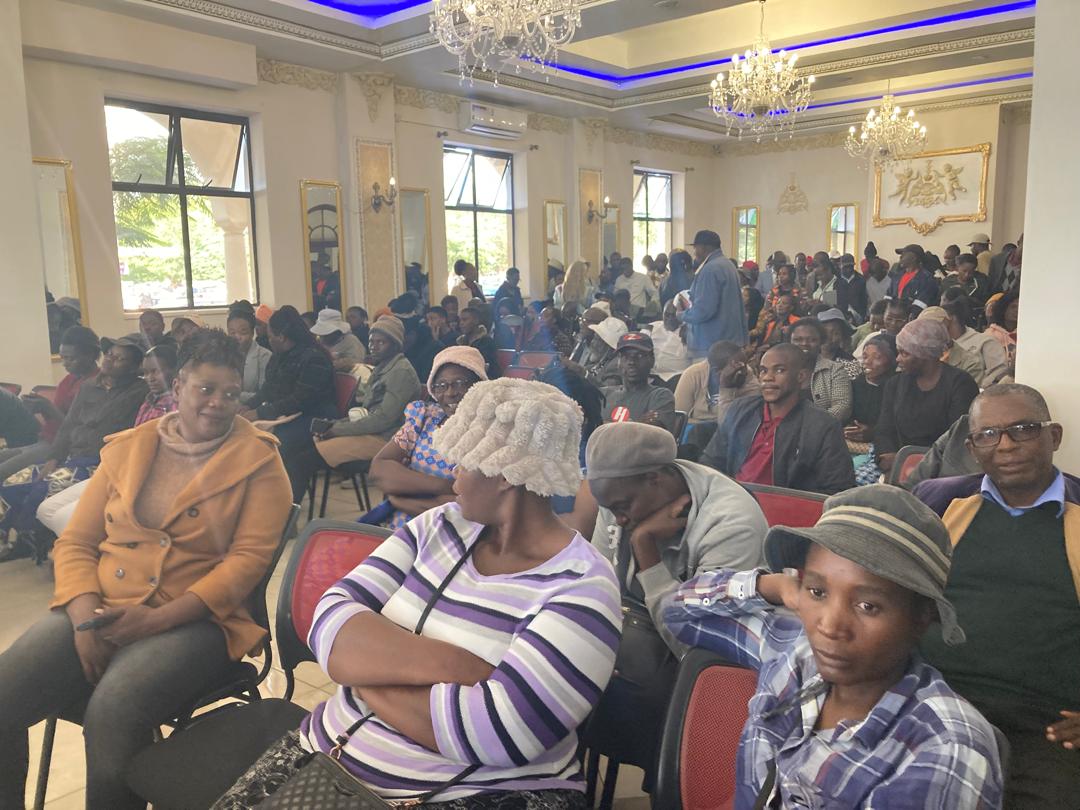Citizens have expressed concern over the growing toxicity of public hearings as they have become beholden to party political interests which undermines their civic role.
Public hearings are one vehicle through which Parliament allows the public to participate in the business of the legislative assembly, as stipulated in Section 141 of Zimbabwe’s constitution.
Parliament has been conducting public hearings in the past weeks on various bills, such as the Persons with Disability Bill, Death Penalty Abolition Public Bill, Administration of Estate Amendment Bill, Criminal Laws Amendment Bill and Private Voluntary Organisation (PVO) Amendment Bill.
However hearings on the PVO Amendment Bill last week were marred by violence in Masvingo and Harare, with the ruling party allegedly bussing several attendees.
Speaking on This Morning On Asakhe hosted by CITE on Tuesday, Cannicious Nkala, a citizen, asserted that Zimbabwe’s intolerant political environment has hampered the efficiency of public hearings.
“Public hearings are not serving their intended purpose in the sense that their intended purpose is to collect data and information but what actually makes them not to work is the toxic political environment,” Nkala said.
“Politics in our country is about winning, which is not the intention of public hearings. A public hearing is about setting up a system that involves people and must involve the people’s views.”
Nkala said there is a need for political parties to focus on educating their supporters about the importance of ideological debates rather than solely prioritising winning.
“Public hearings have nothing to do with an embassy of a certain country but everything to do with our public system. When we elect Members of Parliament they must come back and listen to the people’s views while crafting a law,” Nkala said.
The participant lamented that public hearings have lost their purpose because the environment has now become intolerant.
“Number two, certain political parties are not actually being fair by not teaching their people to understand what a battle of ideas is in actuality.”
Another participant identified as Njabulo echoed similar sentiments, lamenting that public hearings are no longer serving their purpose due to politicians who disregard the needs of the community.
“Public hearings are a very good process for any country, community, or government to hear what its people are saying concerning any law, any act or anything else because this is where you get what the community is saying. If we had genuine politicians it was a good time for them to feel what the people on the ground are saying and the changes they need in Zimbabwe,” Njabulo said.
“We have people that are not concerned about the needs of the community and the general populace, which is why they cause disruptions because they don’t want an opposing voice. They don’t want to hear what people have to say, they want to push their agenda down the throats of the people. They are bussing people and they are making public hearings a bad spot for everyone,” he said.
Njabulo criticised the practice of bussing in individuals to disrupt hearings and noted that misinformation further undermines the effectiveness of these gatherings.
“Imagine bussing people to disrupt a meeting. What is the purpose of disrupting a meeting because someone is trying to push their own agenda? At the end of the day, our politics has just intoxicated every good system. In the majority of these hearings, the people that come in and disrupt these meetings are Zanu PF supporters,” he claimed.
“They will misinform people I don’t know whether deliberately or trying to push an agenda which is very problematic in Zimbabwe. These are some of the things that have made public hearings to be not effective or play a good role when it comes to what their intentions are in running Zimbabwe.” he said.
Public hearings do have a function, ZAPU Secretary General Mthulisi Hanana conceded, but expressed regret that “we have a government that just does not listen to the people.”

